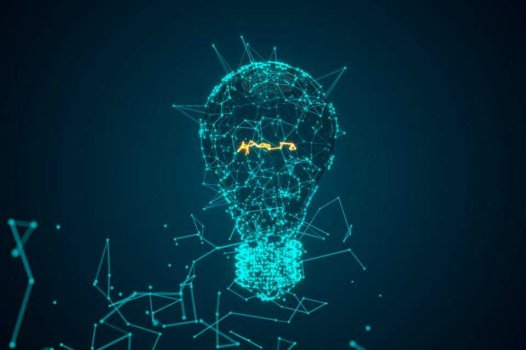Artificial intelligence (AI) is thought to be instrumental to the complex phase confronting critical infrastructure and its sectors. Every industry is facing the mounting necessity to become more agile, resourceful and sustainable. As a result of those pressures, entities in charge of systems that are essential in our everyday lives have made substantial strides toward constructive transformation and smarter digital initiatives. Ambitions for smart cities with intelligent critical infrastructure are no exception.
Out of the 16 "critical systems" infrastructure sectors defined by the U.S. Cybersecurity Infrastructure and Security Agency (CISA), AI stands to make some of its greatest impacts on energy, power/utilities, manufacturing and healthcare during this transformational stage, which seeks to make our systems as smart as possible. AI is expected to play a foundational role across our most critical infrastructures.
However, some are hesitant and concerned that AI isn’t relatable enough to be delegated such an important assignment, asking important questions about whether it’s capable of taking on such vital tasks, collaborative enough to cooperate with humans and trustworthy enough to prove its transparency, reliability and dependability. As the CEO of an AI company making advanced digitalization software products and solutions for critical infrastructure industries, I believe that enabling humans and AI to form a trusting partnership should always be a crucial consideration.
AI Across Major Critical Infrastructure Systems
Whether because of resistance to buy-in by stakeholders that misinterpret AI’s goals or underutilization of proposed solutions—and unrealistic expectations (or simple distrust) around the technology’s ability to solve complex problems—AI adoption and implementation reluctance have been noteworthy obstacles. However, AI has long been proving its value across major industries such as those within critical infrastructure. It's often at the forefront of driving valuable strategies and optimizing the industry across all operations, largely putting such uncertainties to rest.
Continue reading: https://www.forbes.com/sites/forbestechcouncil/2022/07/01/can-we-trust-critical-infrastructure-to-artificial-intelligence/?sh=13f2640d1a7b
Out of the 16 "critical systems" infrastructure sectors defined by the U.S. Cybersecurity Infrastructure and Security Agency (CISA), AI stands to make some of its greatest impacts on energy, power/utilities, manufacturing and healthcare during this transformational stage, which seeks to make our systems as smart as possible. AI is expected to play a foundational role across our most critical infrastructures.
However, some are hesitant and concerned that AI isn’t relatable enough to be delegated such an important assignment, asking important questions about whether it’s capable of taking on such vital tasks, collaborative enough to cooperate with humans and trustworthy enough to prove its transparency, reliability and dependability. As the CEO of an AI company making advanced digitalization software products and solutions for critical infrastructure industries, I believe that enabling humans and AI to form a trusting partnership should always be a crucial consideration.
AI Across Major Critical Infrastructure Systems
Whether because of resistance to buy-in by stakeholders that misinterpret AI’s goals or underutilization of proposed solutions—and unrealistic expectations (or simple distrust) around the technology’s ability to solve complex problems—AI adoption and implementation reluctance have been noteworthy obstacles. However, AI has long been proving its value across major industries such as those within critical infrastructure. It's often at the forefront of driving valuable strategies and optimizing the industry across all operations, largely putting such uncertainties to rest.
Continue reading: https://www.forbes.com/sites/forbestechcouncil/2022/07/01/can-we-trust-critical-infrastructure-to-artificial-intelligence/?sh=13f2640d1a7b

